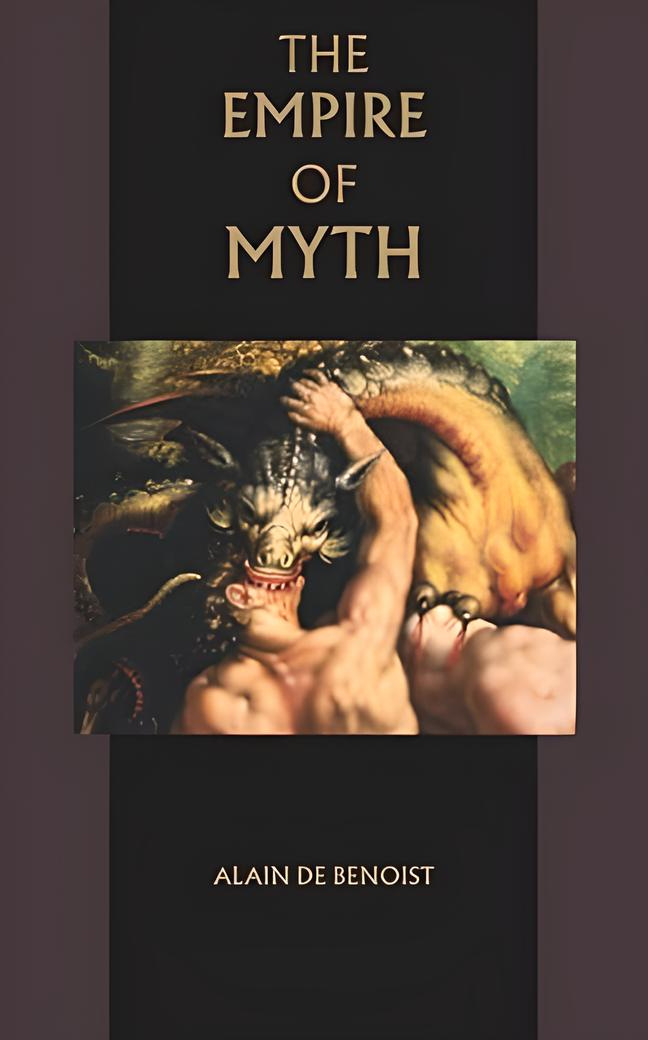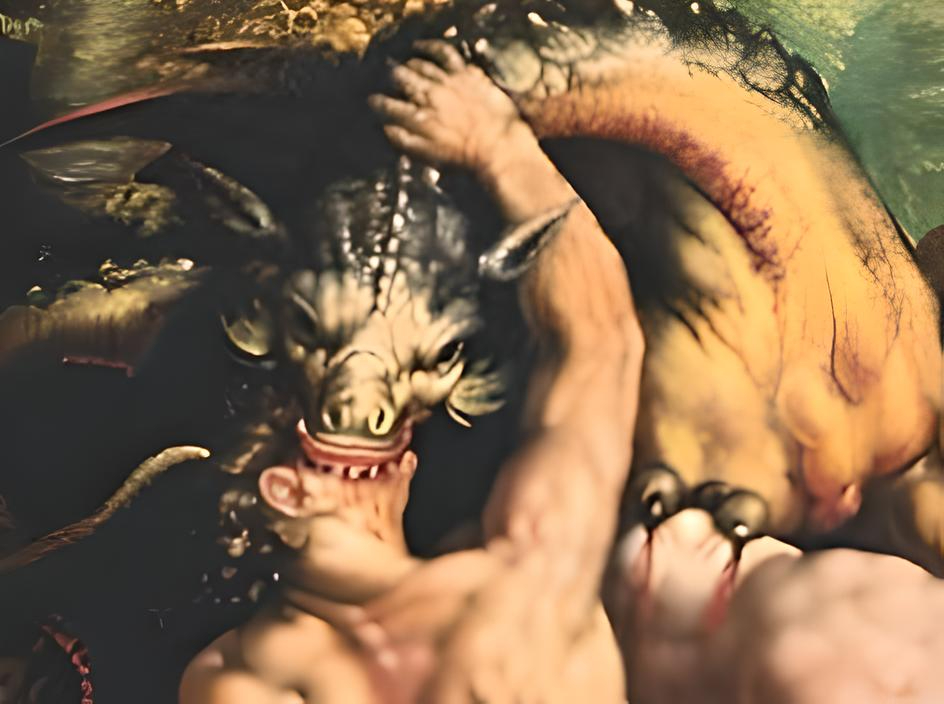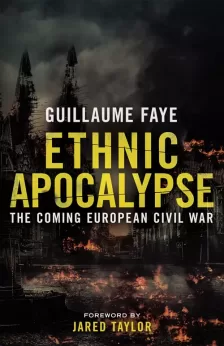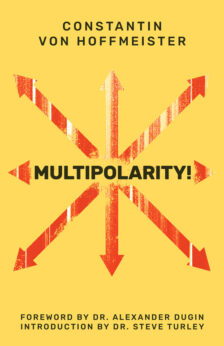In The Empire of Myth, an English translation by Arcana Europa, French philosopher Alain de Benoist offers a masterful exploration and defense of mythic thinking, arguing for its enduring relevance and profound truth value in our modern disenchanted world. Through careful philosophical analysis drawing on both ancient and modern thinkers, de Benoist demonstrates how myth represents not primitive superstition to be outgrown, but rather a fundamental way of understanding reality that may be essential for human flourishing.
The book’s central thesis is that authentic myth is not simply stories about gods or allegorical tales, but rather represents a direct revelation of Being itself — a “primal affirmation of Being, which names Being from itself.”1 De Benoist draws particularly on the work of German classical scholar Walter F. Otto to argue that myth is not subjective human creation but rather an objective reality that seizes and shapes human consciousness. As he explains, “Authentic myth…is neither a mode of thought nor a conception, nor is it some kind of ingenious or profound fantasy; it is rather the self-revelation of Being, and as such it seizes man in his entirety and gives form to his existential bearing.”2
One of the book’s key contributions is its careful distinction between authentic myth and various modern “political myths” that appropriate mythic forms for ideological purposes. De Benoist shows how political movements from Marxism to fascism have attempted to harness the power of myth while fundamentally misunderstanding its nature. True myth reveals the world in its totality and connects humans to a cosmic order; ideological pseudo-myths merely express subjective will and alienate humans from authentic Being.
De Benoist provides an illuminating discussion of how myth relates to language and poetry. Rather than seeing myth as something poets create, de Benoist argues that authentic poets merely give voice to myth — they are “content to say it” rather than creating it.3 This connects to a deeper point about language itself being fundamentally mythic: “Language is not a product of human subjectivity, rather it is directly connected with the reality of the world, indeed it is this very reality in the truest sense.”4
One of the most valuable aspects of the book is its critique of both religious and secular attempts to “demythologize” human consciousness. De Benoist shows how Christianity, despite incorporating mythic elements, ultimately contributed to the disenchantment of the world through its anti-cosmic dualism and linear conception of time. Yet he argues that secular rationalism’s attempt to completely dispense with myth has led to an impoverished understanding that can grasp how things work but not what they fundamentally are.
De Benoist makes a compelling case that myth is not simply an outdated “stage” of human development, but rather represents a mode of understanding that remains vital. As he notes, “Far from giving birth to a new harmony, modern man has only managed to make into a general rule the struggle of all against all, the universal hostility of all separate parties.”5 The mythic perspective, by contrast, allows humans to participate in a meaningful cosmic order.
Particularly insightful is de Benoist’s discussion of how myth relates to time and history. Rather than seeing myth as simply stories about the past, he shows how mythic time transcends ordinary temporal categories: “What is ‘original’ is not something that has happened once and for all; it is what repeats and continuously occurs, here and now, each time that someone conforms to it.”6 This helps explain both the perennial power of authentic myths and their ability to shape human consciousness across different historical contexts.
The book also offers an important perspective on contemporary attempts to rehabilitate myth, from Jung’s psychological interpretations to various anthropological approaches. While appreciating the insights these approaches offer, de Benoist argues that they often remain trapped in modern subjectivism, reducing myth to a product of human consciousness rather than recognizing its objective reality as a revelation of Being itself.
The Empire of Myth represents an invaluable contribution to our understanding of myth and its enduring significance. De Benoist demonstrates convincingly that far from being primitive superstition, authentic myth offers a profound way of understanding reality that modern thought cannot simply supersede. His argument that “myth is always present and always open because it sketches the form of a possible that no actualization can ever hope to exhaust”7 points toward the continuing relevance of mythic consciousness for addressing contemporary philosophical and cultural challenges.
The book’s final call to “let the mythologems speak for themselves and simply to listen”8 suggests both the difficulty and the vital importance of recovering authentic mythic understanding in our time. De Benoist has provided an essential philosophical framework for undertaking this task. For anyone interested in questions of meaning, truth, and human enrichment in our disenchanted modern world, The Empire of Myth offers crucial insights and provocative challenges to conventional thinking about these fundamental issues.
Through careful philosophical analysis and engagement with both classical and modern thinkers, de Benoist makes a compelling case that authentic mythic consciousness remains vital for human advancement. The book represents an important contribution to ongoing debates about meaning and truth in our increasingly technocratic civilization.
Order The Empire of Myth here.

Footnotes
de Benoist, Alain. The Empire of Myth. Arcana Europa, 2021. p 6.
Ibid., p 7.
Ibid., p 75.
Ibid., p 74.
Ibid., p 19.
Ibid., p 13.
Ibid., p 76.
Ibid., p 77.








Thanks. Maybe I’ll get the book as a gift celebrating the myth of the savior.